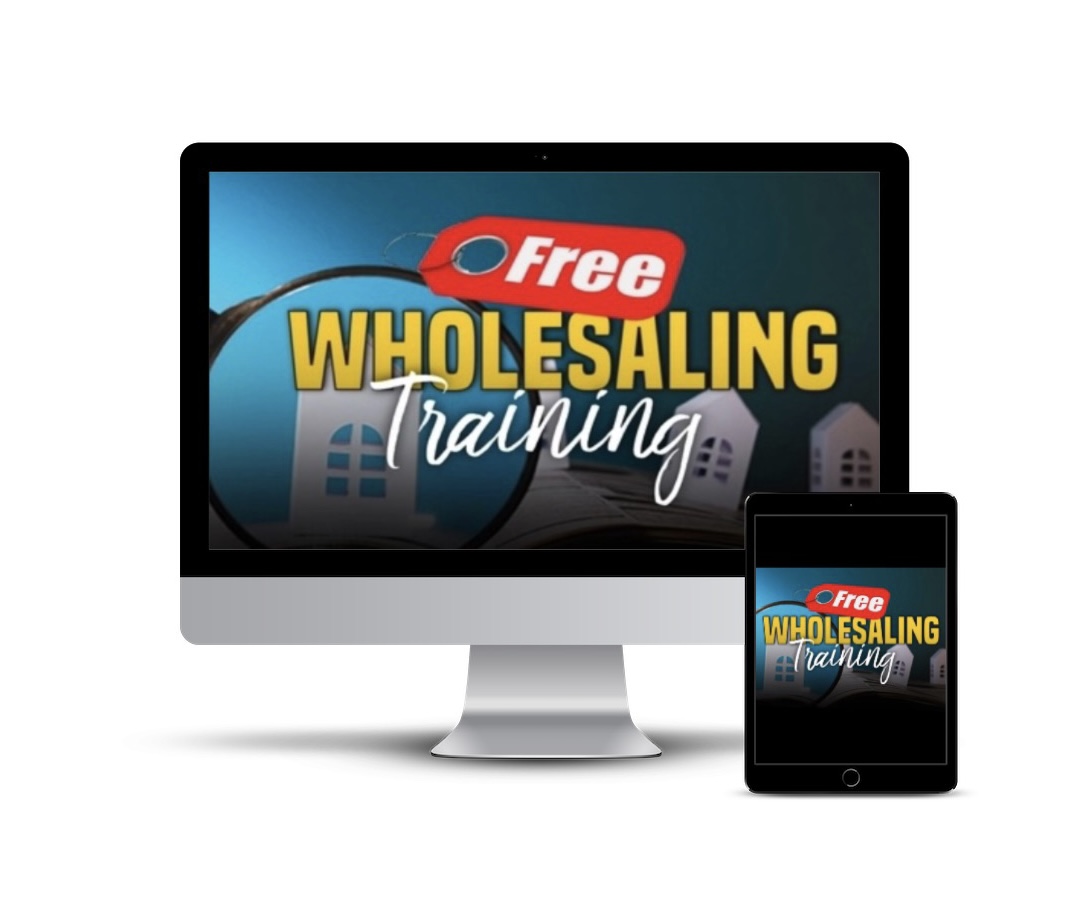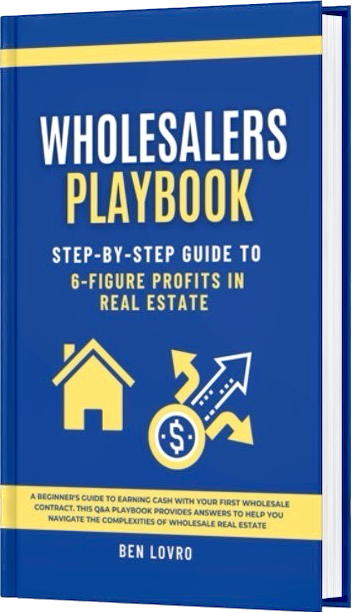FREE WHOLESALING COURSE
Get The Exact Blueprint To Launch And Grow A Successful Real Estate Wholesaling Business


Assigning Real Estate Wholesale Contracts
Introduction
Are you ready to dive into the exciting world of real estate wholesaling?
It's a world where opportunities abound, and one essential skill you'll need to master is the art of assigning contracts.
Understanding Wholesale Contracts
Before we delve into assigning contracts, let's make sure we're on the same page about what they are.
A wholesale contract is essentially a legal agreement between you (the wholesaler) and the property owner (the seller).
This agreement gives you the right to buy the property at a specified price and within a set timeframe. However, it doesn't necessarily mean you have to buy the property yourself.
The Assignment Clause
Now, here's where the magic happens.
Most wholesale contracts contain an assignment clause.
This clause allows you, the wholesaler, to transfer or "assign" the contract to another buyer.
This is where your profit potential comes into play.
Finding Your Buyer
To successfully assign a contract, you'll need to find an interested buyer. This is where your network and marketing skills come into play.
You can connect with potential buyers through real estate investor meetings, online forums, and social media.
Negotiating the Assignment Fee
Negotiating the assignment fee is a crucial part of real estate wholesaling.
It's where you determine how much money you'll make from the deal. Think of it as your reward for finding a great property and a buyer who's interested in it.
When negotiating the assignment fee, you want to strike a balance.
You want it to be high enough to make a good profit, but not so high that it scares away potential buyers.
Most assignment fees fall in the range of $1,000 to $5,000, but it can be more for complex or highly profitable deals.
Your negotiation skills come into play here.
You need to communicate effectively with your buyer and ensure they see the value in the deal.
It's a win-win situation when both you and the buyer are satisfied with the assignment fee, and it's a key part of your success in real estate wholesaling.
Drafting the Assignment Agreement
Drafting the Assignment Agreement is a crucial step in the world of real estate wholesaling.
This agreement is like a roadmap that guides the transfer of the contract from you, the wholesaler, to the new buyer.
Let's break down this important process in simple terms.
You need to create a document that outlines all the details of the assignment.
This includes the names of all parties involved, the property address, the original contract terms, and the agreed-upon assignment fee.
You'll also specify the closing date, which is when the property officially changes hands.
The assignment agreement should be clear and easy to understand, leaving no room for confusion.
It's like writing down the rules of a game so that everyone knows what to expect.
This way, you protect yourself and ensure that the process goes smoothly.
Once the assignment agreement is ready, all parties involved – you, the property seller, and the new buyer – will need to sign it.
This is an important legal step to make the assignment official and binding.
It's similar to signing a contract when you buy a new phone or a video game.
Remember, the assignment agreement is a legal document, so it's crucial to get it right.
You might want to consider consulting with a real estate attorney to make sure everything is in order. Think of it as having a coach to help you win the game.
In the end, the assignment agreement is like the glue that holds the whole assignment process together.
It ensures that everyone follows the rules and that the property transfer happens smoothly.
So, when it comes to drafting this agreement, attention to detail is key, and getting it right can lead to a successful real estate wholesaling deal.
Closing the Deal
Closing the deal in real estate wholesaling is the thrilling moment when all the hard work and negotiations come to fruition.
It's like the grand finale of a fireworks show – the most exciting part.
Once you've found a buyer and negotiated the assignment fee, it's time to make things official.
First, you'll need to draft an assignment agreement.
This document lays out all the important details, such as how much you'll get paid, when the deal will close, and any other terms you and the buyer agree on.
It's like a road map that guides everyone through the final steps of the transaction.
Once the assignment agreement is signed by all parties – that's you, the seller, and the buyer – you're almost there.
The deal is just one step away from being complete.
All that's left is for the buyer to take over the contract and move forward with buying the property.
When the closing date arrives, the buyer will usually work with a title company or attorney to handle all the necessary paperwork and funds.
You'll receive your assignment fee at this point, and your role in the deal is finished.
It's like passing the baton in a relay race – you've done your part, and now it's up to the buyer to cross the finish line.
Potential Challenges
While assigning real estate wholesale contracts can be a rewarding endeavor, it's essential to be aware of the potential challenges that may arise along the way.
These challenges can vary, but being prepared to face them head-on is crucial for success in the world of real estate wholesaling.
1. Seller Resistance: Some property sellers may not fully understand the concept of contract assignment or may have reservations about it. They might be hesitant to allow you to assign the contract to another buyer. To address this challenge, effective communication and education about the process may be necessary.
2. Finding Buyers: Locating interested buyers who are willing to take over your assigned contracts can be challenging, especially for beginners. Building a network of potential buyers and utilizing marketing strategies can help overcome this hurdle.
3. Assignment Fee Negotiations: Negotiating the assignment fee with the buyer can sometimes be tricky. You'll need to strike a balance between securing a reasonable profit for yourself and ensuring the fee is attractive to the buyer.
4. Legal Considerations: Ensuring that all your contract assignments are legally sound is essential. Failure to do so could result in legal disputes and complications. Seeking legal counsel or guidance can help mitigate this risk.
5. Competitive Market: In a competitive real estate market, finding profitable deals that allow for substantial assignment fees can be challenging. Staying informed about market trends and being persistent in your search for deals is vital.
6. Deal Complexity: Some wholesale deals may be more complex than others, involving multiple parties or unique circumstances. Handling these complexities effectively may require additional expertise and resources.
7. Financing Issues: If you're unable to find a buyer for your assigned contract, you may be obligated to purchase the property yourself, which could pose financial challenges.
Conclusion
In the world of real estate wholesaling, assigning contracts is a valuable skill that can open doors to lucrative opportunities. By understanding the process, building a network of potential buyers, and negotiating fair assignment fees, you can embark on a successful journey in the world of real estate investing. So, are you ready to take the next step and start assigning real estate wholesale contracts? Your path to profit awaits!

Search Blog
Year
Month



